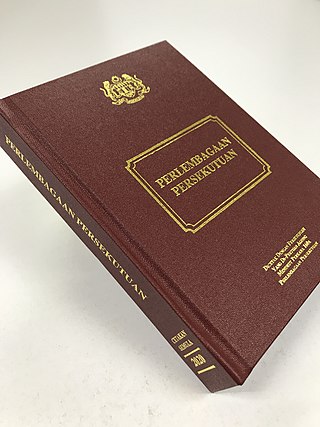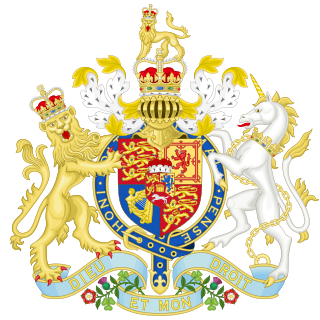Related Research Articles
The Civil Rights Cases, 109 U.S. 3 (1883), were a group of five landmark cases in which the Supreme Court of the United States held that the Thirteenth and Fourteenth Amendments did not empower Congress to outlaw racial discrimination by private individuals. The holding that the Thirteenth Amendment did not empower the federal government to punish racist acts done by private citizens would be overturned by the Supreme Court in the 1968 case Jones v. Alfred H. Mayer Co. The Fourteenth Amendment not applying to private entities, however, is still valid precedent to this day. Although the Fourteenth Amendment-related decision has never been overturned, in the 1964 case of Heart of Atlanta Motel, Inc. v. United States, the Supreme Court held that Congress could prohibit racial discrimination by private actors under the Commerce Clause, though that and other loose interpretations of the Clause to expand federal power have been subject to criticism.

The Canadian Bill of Rights is a federal statute and bill of rights enacted by the Parliament of Canada on August 10, 1960. It provides Canadians with certain rights at Canadian federal law in relation to other federal statutes. It was the earliest expression of human rights law at the federal level in Canada, though an implied Bill of Rights had already been recognized in the Canadian common law.
The Constitution Act, 1982 is a part of the Constitution of Canada. The Act was introduced as part of Canada's process of patriating the constitution, introducing several amendments to the British North America Act, 1867, including re-naming it the Constitution Act, 1867. In addition to patriating the Constitution, the Constitution Act, 1982 enacted the Canadian Charter of Rights and Freedoms; guaranteed rights of the Aboriginal peoples of Canada; entrenched provincial jurisdiction over natural resources; provided for future constitutional conferences; and set out the procedures for amending the Constitution in the future.

The Ecclesiastical Appeals Act 1532, also called the Statute in Restraint of Appeals, the Act of Appeals and the Act of Restraints in Appeals, was an Act of the Parliament of England.

The Federal Constitution of Malaysia, which came into force in 1957 as the Constitution of the Federation of Malaya and was amended in 1963 to form the Constitution of Malaysia, is the supreme law of Malaysia and contains a total of 183 articles. It is a written legal document influenced by two previous documents, the Federation of Malaya Agreement 1948 and the Independence Constitution of 1957. The Federation was initially called the Federation of Malaya and it adopted its present name, Malaysia, when the states of Sabah, Sarawak and Singapore became part of the Federation. The Constitution establishes the Federation as a constitutional monarchy, having the Yang di-Pertuan Agong as the Head of State with largely ceremonial roles. It provides for the establishment and organisation of three main branches of the government: the bicameral legislative branch called the Parliament, which consists of the House of Representatives and the Senate ; the executive branch led by the Prime Minister and his Cabinet Ministers and the judicial branch headed by the Federal Court.
The Nineteenth Amendment of the Constitution is an amendment of the Constitution of Ireland which permitted the state to be bound by the British–Irish Agreement and enabled the establishment of shared political institutions between Ireland and Northern Ireland. It also provided a mechanism for a further amendment to the Constitution upon a declaration by the government on the implementation of the Agreement, most notably by changing Articles 2 and 3 from the previous claim over the whole island of Ireland to an aspiration towards creating a united Ireland by peaceful means, "with the consent of a majority of the people, democratically expressed, in both jurisdictions in the island".
Parliamentary privilege is a legal immunity enjoyed by members of certain legislatures, in which legislators are granted protection against civil or criminal liability for actions done or statements made in the course of their legislative duties. It is common in countries whose constitutions are based on the Westminster system.

Parliament of Sierra Leone is the legislative branch of the government of Sierra Leone. It is principally responsible for making laws. The Sierra Leone parliament consists of 149 members, of which 135 members are directly elected from across Sierra Leone's 16 districts, while 14 are paramount chiefs appointed from the 14 rural districts. The parliament is led by the Speaker of the House; the position is currently held by Abass Bundu of the Sierra Leone People's Party. The current elected 135 ordinary members of parliament are composed of members of the All People's Congress and the Sierra Leone People's Party which are the two largest political parties in Sierra Leone.

Richard Strode was in 1512 a Member of Parliament for Plympton Erle, Devon and was also involved in the tin mining industry. He is best known for having instigated Strode's case, one of the earliest and most important English legal cases dealing with parliamentary privilege.

The Confiscation Act of 1861 was an act of Congress during the early months of the American Civil War permitting military confiscation and subsequent court proceedings for any property being used to support the Confederate independence effort, including slaves.

The Habeas Corpus Act 1640 was an Act of the Parliament of England.
The Constitution of the State of Maine established the "State of Maine" in 1820 and is the fundamental governing document of the state. It consists of a Preamble and ten Articles (divisions), the first of which is a "Declaration of Rights".

The Privilege of Parliament Act 1512 or the Parliamentary Privilege Act 1512, commonly known as Strode's Act, is an Act of the Parliament of England. It enacted parliamentary privilege in law, prohibiting any suit or prosecution from being brought or punishment being imposed against any MP or peer for speaking on any matter in parliament.
For the government of India, Part XI of the Constitution of India – consists of Articles on Relations between the Union and States.
Article One of the Georgia State Constitution describes the Georgia Bill of Rights, a set of forty paragraphs which enumerate the Rights of Persons, the Origin and Structure of Government and other General Provisions. The Georgia Bill of Rights was written by Thomas R.R. Cobb under the title Declaration of Fundamental Principals, as part of the Georgia Constitution of 1861 when the State of Georgia seceded from the United States of America and joined the Confederate States of America.
The Protestation of 1621 was a declaration by the House of Commons of England reaffirming their right to freedom of speech in the face of King James I's belief that they had no right to debate foreign policy.

The Piracy Act 1850, sometimes called the Pirates Repeal Act 1850, is an Act of the Parliament of the United Kingdom. It relates to proceedings for the condemnation of ships and other things taken from pirates and creates an offence of perjury in such proceedings.

The House of Lords Precedence Act 1539 is an Act of the Parliament of England. It prescribed the order of precedence of members of the House of Lords. However, some of it has since been superseded or repealed, and so for the full order of precedence today other sources should also be consulted.

The Ordination of Ministers Act 1571 was an Act of the Parliament of England. Its principal provision was to require clergy of the Church of England to subscribe to the Thirty-Nine Articles of Religion.

The Marriage of Lunatics Act 1811 was an Act of Parliament of the United Kingdom implemented under the reign of George III of Great Britain. It was intended "to prevent the marriage of Lunatics" and make all marriages to Lunatics prior to and after the bill, whether diagnosed before marriage or otherwise, "null and void to all intents and purposes whatsoever".
References
- ↑ Text of the Privilege of Parliament Act 1512 as in force today (including any amendments) within the United Kingdom, from legislation.gov.uk .